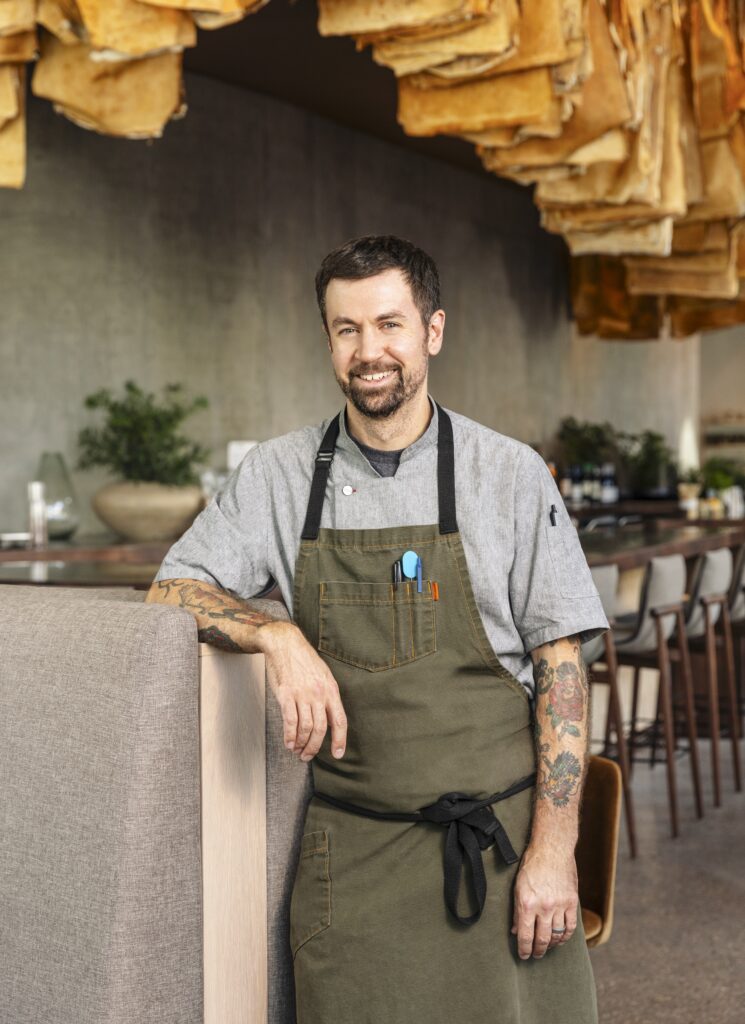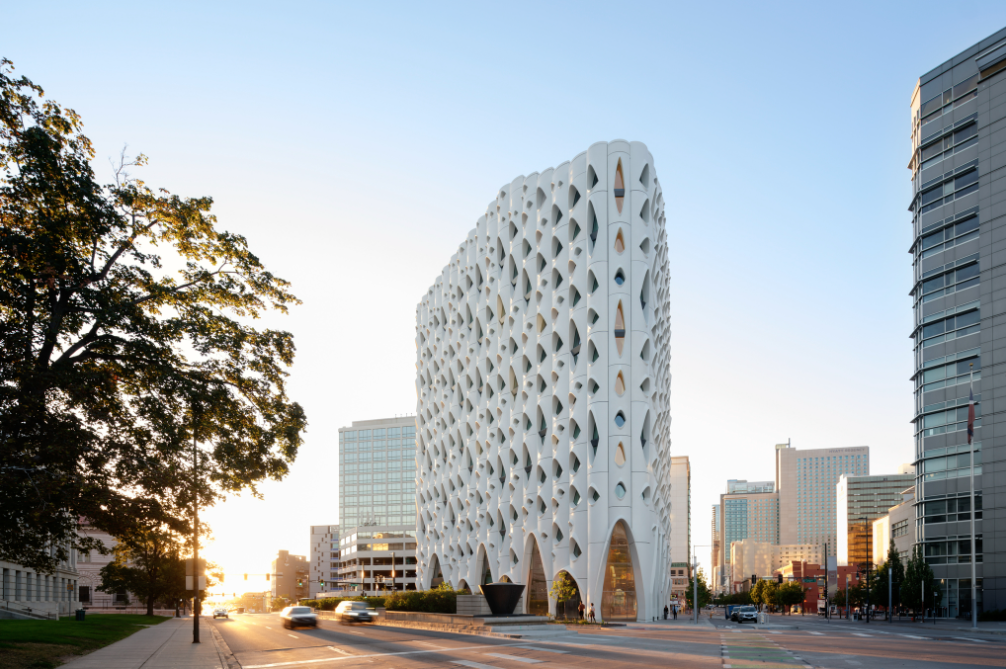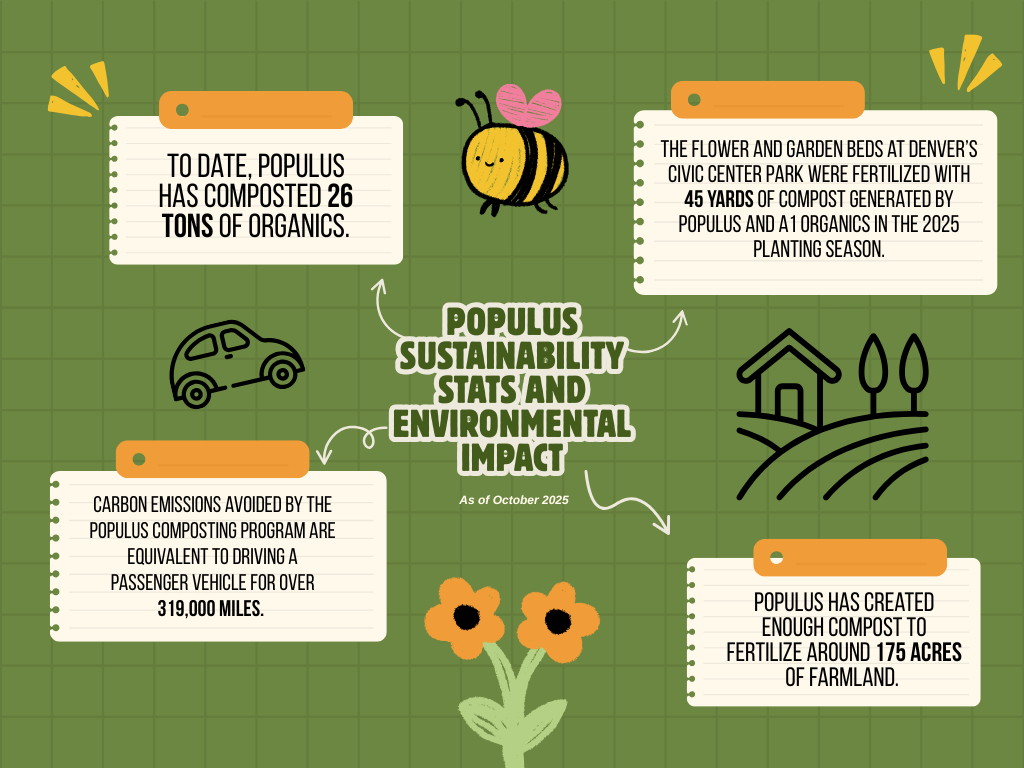The only thing being “greenwashed” here are the locally sourced vegetables.

Populus Denver is the first of its kind, as a symbol of ushering in an era of revitalized eco-conscious awareness initiatives in the hospitality industry. It’s a “carbon positive hotel,” which means it leaves the environment better off than before its existence — removing more carbon dioxide from the atmosphere than it emits, through strategic sustainability initiatives aiming to have a positive impact on combating climate change.
All aspects of the hotel and its amenities are purposefully rooted in the natural environment in an authentic way, including the biophilic architecture inspired by Colorado’s native flora (the hotel is meant to look like an aspen) and the interiors and on-site art program evoking a sense of being in nature.
When the hotel was built, its embodied carbon footprint was reduced through a combination of sustainable design and construction techniques and offset by the acquisition of 7,000 tons of certified carbon credits—along with the planting of 70,000 trees in Gunnison County, Colorado. The “One Night, One Tree” in partnership with the National Forest Foundation ensures a tree is planted for every night’s stay.

But the property’s eco-consciousness goes deeper beyond its architecture and attitude and into its soul, by way of its thoughtful food and beverage program. This includes sourcing seasonally and consciously-curated restaurant menus, and is a zero waste program—setting a high standard for the rest of the local hospitality scene.
“This is important to me because I have spent my life in restaurants and hospitality, and see the space as an essential part of us being human,” says Ian Wortham, Executive Chef for on-site restaurants, Pasque and Stellar Jay.
The on-site team’s efforts to make a positive impact on the environment include partnering with Zero Foodprint, Wolfe’s Neck Center for Agriculture and the Environment, and the U.S. Department of Agriculture and committing one percent of its restaurant sales to regenerative farming–which will be matched by Wolfe’s Neck–and prioritizing sourcing food through regenerative agriculture partnerships.

The team also uses a device called a biodigester machine they have right at the property that breaks down organic waste into a slurry which is then added to other organic material to make high quality compost for agriculture.
“This makes the process more efficient because it requires fewer pickups and less space than would be necessary if we collected the waste without processing it at Populus Denver first,” explains Chef Ian.
He shares additional insight into how other hospitality entities can easily become more eco-friendly businesses, overall.
“Maximizing compost for organic material is a big first step,” he says. I was surprised at how much greenhouse gas is produced from landfilling organic material. Composting effectively ensures emissions that would go into the atmosphere go into the ground.”

Another strategy they team utilizes is sourcing everything for the kitchen as locally as possible, and focusing on partnering with local businesses who keep sustainability at the front of their mind. For example, Chef Ian and his team source many of their vegetables from Esoterra Culinary Garden in Boulder County, which is a true regenerative no-till operation.
For Populus, it’s not a matter of “if,” it’s a matter of when, and “how” – how effective and impactful, how quick, how authentic – and even “how measurable.”
“Looking ahead to how we can better work in this essential capacity, while changing with our changing world, is necessary to preserve our industry.”





